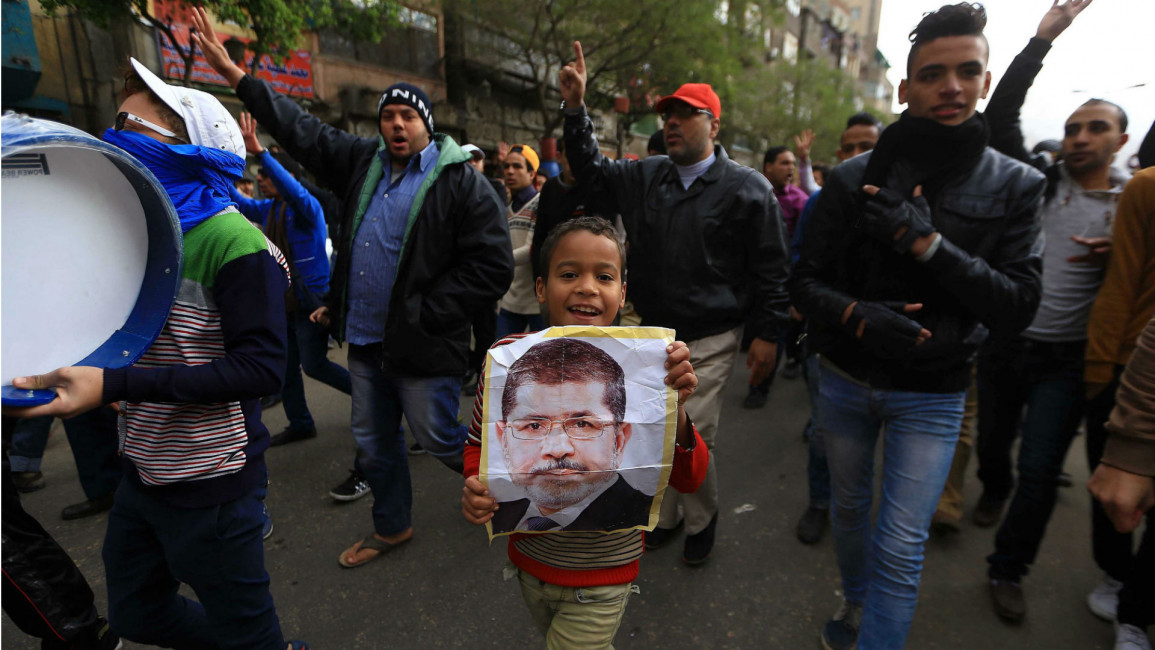Mohamed Morsi: Sisi behind 2011 Egypt massacres
Mohamed Morsi, the former president of Egypt, has used a court appearance to accuse the man who toppled him of being directly responsible for the deaths of protesters in the 2011 revolution against Hosni Mubarak.
At the court in northern Cairo on Sunday, Morsi said he was still the country's "legitimate president", and that the current president, Abdel Fatah al-Sisi, was behind massacres in Cairo's Tahrir Square and elsewhere in 2011 while he was the country's army chief.
"Senior officials, led by Sisi, the leader of the military coup, killed the protesters of the January revolution in Tahrir. They stood on the rooftops of the surrounding hotels – and [workers] at these hotels have proof – and shot at the protesters," he said.
|
Senior officials, led by Sisi... killed the protesters of the January revolution in Tahrir. Mohamed Morsi, former Egyptian president |
"The current rulers are the ones responsible for the events in Mohammad Mahmoud street, Maspero, and Port Said [massacres in Egypt], because they wanted to sabotage the country."
Morsi, a Muslim Brotherhood leader who came to power in elections after the 2011 revolution, said he did not order Sisi's immediate arrest in order to maintain the integrity of the "army institution".
Rejecting criticism
Morsi was appearing in court on charges of espionage for allegedly working with "foreign powers" to destabalise Egypt, including the Palestinian group, Hamas, during his time as president.
During questioning, Morsi rejected criticisms that he acted in an authoritarian manner during president.
"It was in my interest to leave the country without a parliament so I would become the legislative authority, but I held elections to maintain the state institutions. I was the president, not a gang leader. I wanted a country with a constitution to protect the institutions and the state from chaos," he said.
Morsi was Egypt's president from June 2012 until the 3 July coup of 2013. He was deposed following popular protests against his rule and criticism that new laws passed by his party, that increased the powers of Morsi, went against the constitution of Egypt.
He and other leading members of the Brotherhood group were arrested and the party banned.



